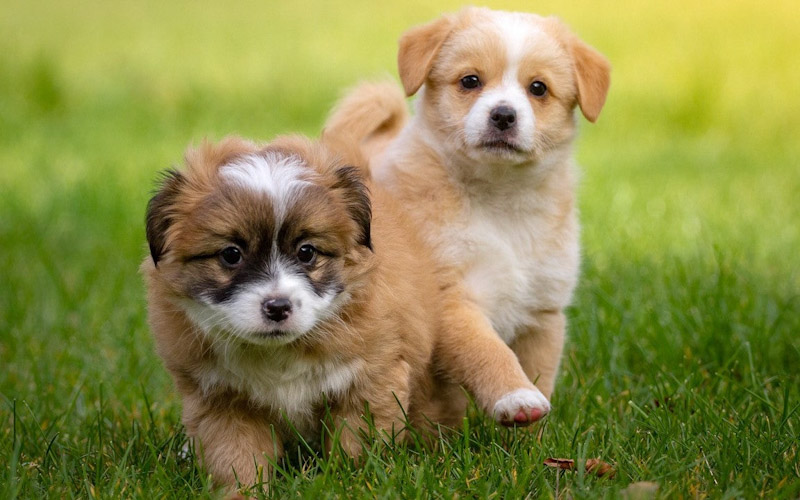Considering welcoming a furry friend into your life? Puppies are adorable, loyal, and fun-loving companions that can bring joy and happiness to any home. However, they also require a lot of care, attention, and responsibility. Before you decide to get a puppy, you need to prepare yourself and your home for the new arrival. This guide explores essential factors like breed selection, training, healthcare, and lifestyle adjustments to ensure a smooth and joyful transition for you and your new pup.

Choosing the Right Breed
One of the most important decisions you will make is choosing the right breed for your puppy. Different breeds have different traits, such as size, temperament, activity level, grooming needs, and health issues. You need to match these traits to your lifestyle and living situation. For example, if you live in a small apartment, you may want to avoid large or energetic breeds that need a lot of space and exercise. If you have allergies, you may want to look for hypoallergenic breeds that shed less. If you have children or other pets, you may want to choose a breed that is friendly and sociable.
To help you research different breeds, you can use online resources like DogTime or American Kennel Club, which provide detailed information and ratings on various aspects of each breed. You can also visit local dog shows, breed clubs, or breeders to see and interact with different breeds in person. Alternatively, you can adopt a puppy from a shelter or a rescue organization, where you can find many mixed-breed or purebred puppies that need loving homes. Adopting a puppy can be a rewarding and fulfilling experience, as you can save a life and give a second chance to a pup in need.
Preparing Your Home
Once you have chosen your breed, you need to prepare your home for the arrival of your puppy. Puppies are curious and playful creatures that can get into trouble if left unsupervised. You need to puppy-proof your home to ensure a safe and comfortable environment for your pup. Some of the puppy-proofing measures you should take include:
- Removing or securing any potential hazards, such as electrical cords, sharp objects, toxic plants, or medications.
- Providing a designated area for your puppy to sleep, eat, and play, such as a crate, a pen, or a gated room.
- Installing baby gates or fences to block off areas that are off-limits to your puppy, such as stairs, kitchen, or bathroom.
- Buying necessary supplies, such as food, water bowls, bedding, leash, collar, harness, crate, toys, treats, and grooming tools.
- Budgeting for ongoing expenses, such as food, vet care, training, and insurance.
Training and Socialization
Another essential factor to consider is training and socialization for your puppy. Training and socialization are crucial for developing a well-behaved and well-adjusted pup that can get along with people and other animals. You should start training and socializing your puppy as soon as possible, preferably within the first 12 weeks of their life, when they are most receptive and adaptable.

Training involves teaching your puppy basic commands, such as sit, stay, come, and leave it, as well as housebreaking, crate training, and leash training. You can use positive reinforcement methods, such as praise, treats, and toys, to reward your puppy for good behavior and discourage bad behavior. You can also enroll your puppy in obedience classes, where you can get professional guidance and support from a trainer and socialize your puppy with other dogs and people.
Socialization involves exposing your puppy to different sights, sounds, smells, and experiences, such as cars, bikes, children, strangers, and other animals. This will help your puppy become more confident, friendly, and adaptable in various situations. You can socialize your puppy by taking them to different places, such as parks, pet stores, or friends’ houses, and letting them interact with different people and animals in a positive and controlled manner. You should also make sure your puppy is vaccinated and dewormed before exposing them to other dogs or public places.
Healthcare Needs
Your puppy’s health and well-being are also important factors to consider. Puppies need regular veterinary checkups and vaccinations to prevent and treat common diseases and parasites, such as rabies, distemper, parvovirus, worms, and fleas. You should take your puppy to the vet as soon as you get them, and follow the recommended vaccination schedule for your breed and area. You should also spay or neuter your puppy to prevent unwanted pregnancies and reduce the risk of certain health problems, such as cancer or infections.
In addition to vaccinations and spaying/neutering, you should also be aware of other common puppy health concerns and preventative measures, such as:
- Dental care: You should brush your puppy’s teeth regularly and provide them with dental chews or toys to prevent plaque, tartar, and bad breath.
- Ear care: You should check your puppy’s ears regularly and clean them gently with a cotton ball and a mild ear cleaner to prevent ear infections or mites.
- Nail care: You should trim your puppy’s nails regularly and carefully with a nail clipper or a grinder to prevent overgrowth, splitting, or injury.
- Coat care: You should groom your puppy regularly and according to their breed’s needs, such as brushing, bathing, clipping, or shedding, to keep their coat clean, healthy, and mat-free.
- Eye care: You should check your puppy’s eyes regularly and wipe them gently with a damp cloth or a saline solution to prevent eye infections or irritation.
You should also consider getting pet insurance for your puppy, which can cover unexpected medical costs in case of accidents or illnesses. Pet insurance can save you from paying hefty vet bills and give you peace of mind that your puppy is well taken care of.

Lifestyle Adjustments
The last factor to consider is the lifestyle adjustments that you will need to make for your puppy. Puppies are not just cute and cuddly, they are also demanding and time-consuming. You need to be ready to commit to your puppy’s needs and provide them with adequate care and attention. Some of the lifestyle adjustments that you will need to make include:
- Time commitment: You will need to spend a lot of time with your puppy, especially in the first few weeks, to bond with them and train them. You will also need to provide them with daily walks, playtime, and mental stimulation to keep them happy and healthy. You should not leave your puppy alone for more than a few hours at a time, as they can develop separation anxiety or boredom, which can lead to destructive or unwanted behaviors.
- Social life: You will need to adjust your social life and travel plans to accommodate your puppy. You may not be able to go out as often or as long as you used to, as you will need to take care of your puppy’s needs. You may also need to find a reliable pet sitter or a boarding facility if you plan to travel or go on vacation. You should also make sure your friends and family are comfortable and respectful around your puppy, and vice versa.
- Family involvement: You will need to involve your family members in your puppy’s care and training, and make sure everyone is on the same page and consistent. You should assign roles and responsibilities to each family member, such as feeding, walking, playing, or grooming, and make sure everyone follows the same rules and commands. You should also monitor your puppy’s interactions with children and other pets, and teach them how to be gentle and respectful.
Conclusion
Getting a puppy is a big decision that requires a lot of preparation and consideration. Puppies are wonderful companions that can enrich your life and bring you joy, but they also come with a lot of challenges and responsibilities. Before you get a puppy, you need to consider factors like breed selection, training, healthcare, and lifestyle adjustments, and make sure you are ready and willing to commit to your furry friend’s well-being. If you are confident and determined to get a puppy, you can visit your local shelter or contact a reputable breeder to find your perfect match. Remember, a puppy is not just a pet, but a lifelong friend and family member.
